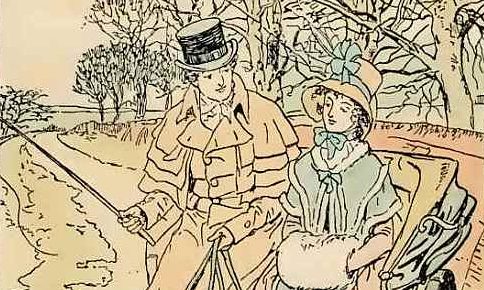I’ve never liked the word nice. It’s a word used so often, and for so many things, that it almost lacks meaning. Whether as a noncommittal response like ‘That seems nice’ or as a way to describe inoffensive people sapped of personality, nice never seems like a very nice thing to say.
A Vague & Mild Agreeableness
In the 1800s, Jane Austen poked fun at the word in Northanger Abbey:
“It is a very nice word indeed! It does for everything. Originally perhaps it was applied only to express neatness, propriety, delicacy, or refinement — people were nice in their dress, in their sentiments, or their choice. But now every commendation on every subject is comprised in that one word.” 1
Austen’s Henry Tilney positions the term as frivolous and overly feminine. And over a hundred years later HW Fowler, arbiter of the King’s English, doubled down on that assessment:
[Nice] has been spoilt, like CLEVER, by its bonnes fortunes ; it has been too great a favourite with the ladies, who have charmed out of it all its individuality & converted it into a mere diftuser of vague & mild agreeableness. Everyone who uses it in its more proper senses, which fill most of the space given to it in any dictionary, & avoids the modern one that tends to oust them all, does a real if small service to the language. 2
Despite Fowler’s call to action, it seems the word hasn’t improved much. Sometime in the 60s or 70s, baseball manager Leo Durocher coined the phrase “Nice guys finish last”. And ‘He seemed like such a nice boy’ has become the stock phrase of the neighbors of serial killers.
The History of ‘Nice’
It’s no wonder the word came to English from an Old French word meaning ‘clumsy, weak, needy, simple, stupid’. By the way, nice has no relation to the French city of Nice. The city is named after Nike, the goddess of victory. The English word nice is ultimately from the Latin nescius meaning, ‘ignorant, unaware’ 3.
Modern speakers seem to use the word as a synonym for good. But the qualities of a ‘nice person’ are often quiet, meek or pitiable—which doesn’t necessarily scream ‘goodness’ to me.
Be ‘Good’ Instead of ‘Nice’
Good, on the other hand, is a descriptor that is underused—or at least underappreciated. While nice is superficial, good takes conviction. Nice is a gesture, but good requires action. One is sentimental, while the other indicates true compassion.
Good is love in the fiercest sense of the word. Not in that cliché sense of rainbows and peace signs and a choir of children. But in a sense of righteousness and strength in the face of evil or indifference. Next time you want to compliment someone, consider calling them good rather than nice. But do it on a judgement of character rather than superficialities.
- Austen, Jane | Chapter 14 | Northanger Abbey | 1817
- Fowler, HW | A Dictionary Modern English Usage | 1926
- “Nice” | Online Etymology Dictionary

